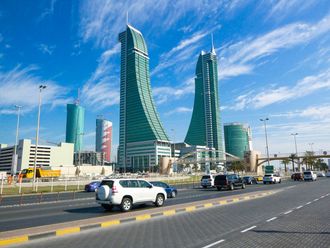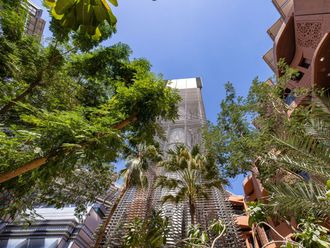Abu Dhabi: Security challenges will feature high on the agenda at the upcoming Gulf Cooperation Council (GCC) Summit on December 6 to 7, security analysts told Gulf News on Sunday.
The foreign military presence in the region, the instability stemming from Iraq, Iran and the impact of the United States' war on terror are major challenges to security and stability in the region, according to analysts.
These threats are exacerbated by regional factors such as the increasing openness to the global economy and demographic stresses stemming from vast immigration into the GCC countries, they said.
"Political conflicts surrounding the GCC region have created security trends that signal a potential blowback that may lead to a dangerous destabilisation," said Dr Theodore Karasik, Director, Research and Development at the Institute for Near East and Gulf Military Analysis (Inegma).
He said that debates converge around globalisation, those that oppose change in favour of power-consolidation, Shiite-Sunni sectarian feuds, and Arab-Persian ethnic struggles.
Long-standing conflict
Karasik said these tensions have become mixed up with other long-standing conflicts such as the Palestinian cause, Iraq, and Lebanon.
"The GCC city-states are today regarded by most people as the emerging world capitals of globalisation despite the financial crisis. The scale of reform and changes on all levels that have taken place in these cities exceeds most countries in the region and even the world," Karasik said.
Therefore, and to avoid any surprises, Karasik said, leaders of the GCC are preparing to protect their valuable achievements, way of life and future.
Abdul Rahman Al Attiyah, GCC Secretary-General, said, "Our focus is Gulf security with a view to safeguarding our homelands and maintaining their integration."
Reiterating his condemnation of unrest in Bahrain, Al Attiyah said: "We support Bahrain as a part of the indivisible GCC body."
The stability of Bahrain is of wider concern because the island hosts the headquarters of the US navy's Fifth Fleet, serving as the hub for operations in an area stretching from the Red Sea to the Gulf and the Indian Ocean.
Karasik said there are both state and non-state threats — specifically from countries such as Iran, the outcome of the war in Afghanistan, Pakistan and Al Qaida in the Arabian Peninsula in Yemen — stressing that recent events and rhetoric point to a continued threat to the GCC countries. Karasik warned Al Qaida is reaching out beyond Yemen and all the way to Europe and the US.
"They continue to threaten more violence," he said.
The confrontation with Iran is likely to occur in 2011 depending on political manoeuvring and posturing. Afghanistan and Pakistan are also later — 2011 and forward," he added.
However, he said he thinks the GCC countries are prepared to counter these threats. "The GCC is currently building up their forces for homeland security."
Shaikh Abdullah Bin Zayed Al Nahyan, Foreign Minister of the UAE, told a preparatory meeting to the summit held early this month that the region is going through a sensitive and complex situation that requires joint cooperation, a clear vision and candid views.
Challenges
"We want the GCC Council to bring us together in addressing the various issues that threaten our world, cross borders and require joint effort and sound planning, including energy and environmental challenges," Shaikh Abdullah said.
On Iran, Shaikh Abdullah said he hopes the meeting, which groups Security Council permanent members and Germany, will bring a peaceful solution to the Iran-West conflict over Tehran's nuclear programme.
The group has discussed a phased approach to resolving the nuclear issue and considered how a revised arrangement for providing fuel for the Tehran research reactor could build confidence and pave the way for tackling issues at the core of Iran's nuclear programme.












